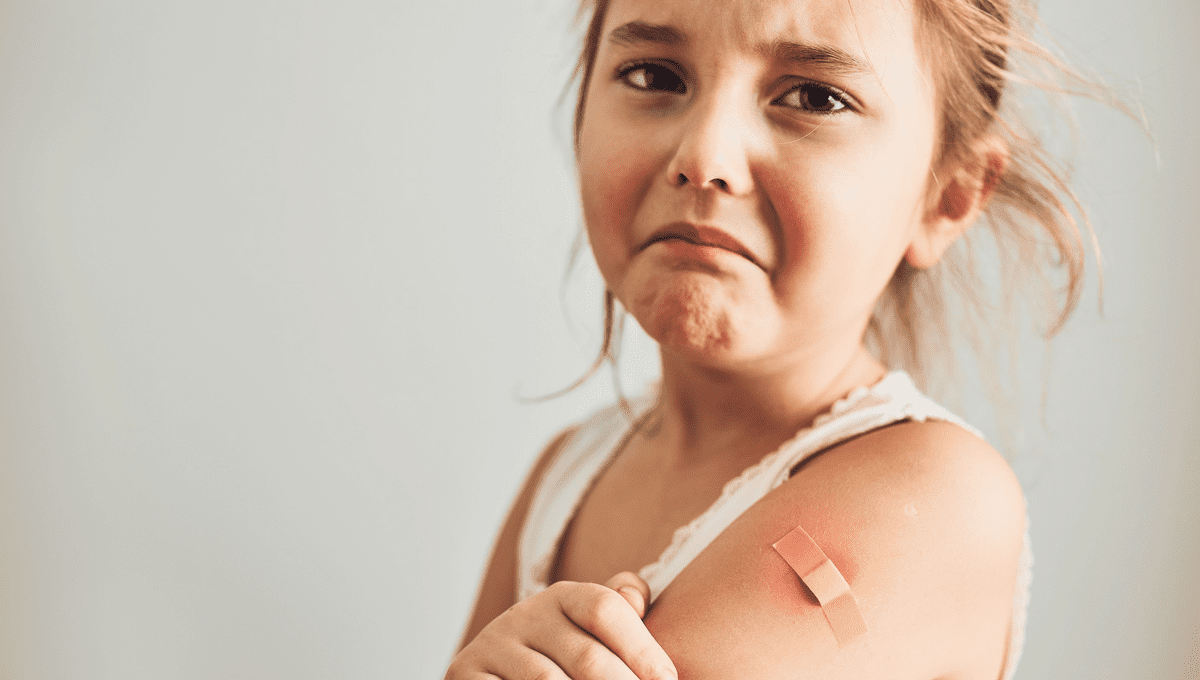
For about half of us who kept up with our COVID-19 vaccinations over the past couple years, the jabs came with no significant side effects whatsoever. The rest of us, though, could expect to experience anything from a sore arm and head to – in albeit extremely rare cases – anaphylactic shock.
Which group you fell into seemed to largely be a matter of chance – people who had previously recovered from COVID-19 were thought to be more likely to experience side effects, and there was some tentative evidence that women had a worse time than men after their respective shots. However, it could be difficult to separate out which side effects were caused by the vaccines and which by the so-called “nocebo” effect, and studies failed to link the severity of a person’s reaction with… well, much at all, really.
Now, though, things are different. A study of close to 1,000 twice-vaccinated people has not only identified a handful of factors that predict stronger reactions to a COVID-19 vaccine – notably, being female, slightly younger, and having been given the Moderna vaccine – but also has some good news for those who spent the days immediately after vaccination suffering.
“Nearly all participants exhibited a positive antibody response to complete mRNA vaccine series,” explains the paper, published last week. “Nonetheless, systemic symptoms remained associated with greater antibody response in multivariable-adjusted models, highlighting unexplained interpersonal variability […] In conclusion, these findings support reframing postvaccination symptoms as signals of vaccine effectiveness and reinforce guidelines for vaccine boosters in older adults.”
In other words: the worse your side effects were, the better chance you have that your body is well-prepared to protect you against the COVID-19 pathogen.
“A lot of people have speculated over the years whether people who had more of a reaction to the vaccine might actually have that represent a more vigorous immune response,” William Schaffner, a professor in the Division of Infectious Diseases at Vanderbilt University Medical Center and medical director of the National Foundation for Infectious Diseases, told CNN. “And these data would appear to support that.”
Nevertheless, Schaffner, who was not involved in the study, cautioned against taking the wrong message from the findings. “I don’t want a patient to tell me that, ‘Golly, I didn’t get any reaction, my arm wasn’t sore, I didn’t have fever. The vaccine didn’t work.’ I don’t want that conclusion to be out there,” he said.
Indeed, it’s important to note that, side effects or not, well over 90 percent of people who received an mRNA vaccine went on to develop an adaptive immune response against COVID-19. The new study does suggest that a good antibody reaction is associated with about a 20 percent increased likelihood of systemic post-vaccination symptoms – that is to say, noticeable things like vomiting, diarrhea, fevers, and so on – but even those study participants who reported no symptoms at all had a 98 percent chance of showing an observable antibody immune reaction thanks to the vaccine.
While the study’s findings echo previous investigations, there are some limitations to be aware of. The sample size was pretty large, but also fairly homogeneous – most everybody involved was non-Hispanic white, over the age of 40, and of the same socio-economic class.
The report also relied on self-reporting of symptoms – as we all know, human memory is far from infallible – and used a measure known as median fluorescence intensity to record antibody response, which is “not standardized against neutralizing antibody titers,” the authors point out.
Nevertheless, it might bring relief for those of us for whom getting vaccinated was more than just a quick shot in the arm.
“This [can] reassure people who have had a reaction,” Scaffner told CNN. “That’s their immune system responding, actually in a rather good way, to the vaccine, even though it has caused them some discomfort.”
The study was published in JAMA Network Open
Source Link: Feeling Crappy After Your COVID-19 Vaccination May Indicate A Better Immune Response